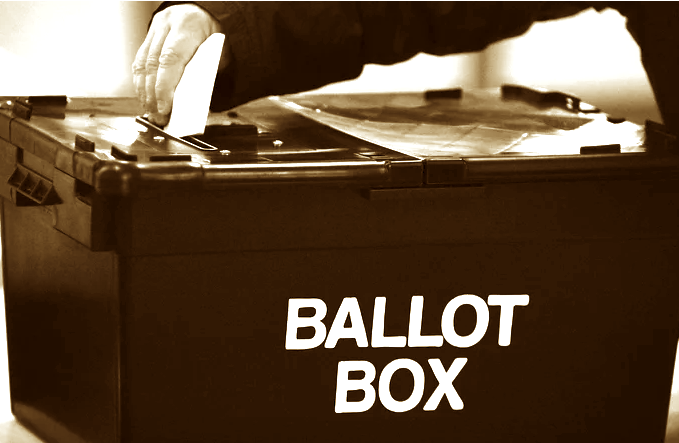When voters go to the polls in 107 local authorities across England on 2nd May, they will hold more than the fate of their local councillor or metro mayor in their ballot pencils. These elections in two weeks could well prove to be the final straw for Rishi Sunak, a prime minister whose leadership continues to take a battering but who appears to be clinging on – just about. They will also be a moment of high tension for Sir Keir Starmer who, as a largely untested leader of the opposition will be praying for a strong showing.
Part of the problem for the Conservatives is that most of the 2,660 seats being fought were last contested in 2021 when the Party did well against Labour, gaining 235 council seats while Labour lost 326.
Tory rebels want the local elections to be the moment when senior party figures wake up to the fact that the party must do something, anything, to avoid catastrophe at a general election, the most popular assumed date for which remains November.
The Conservatives face a possible wipeout, the most brutal of which could be the West Midlands Mayoralty, held by ex-John Lewis exec Andy Street, who has held the position since 2017. He will struggle to hold on, having scraped home with a 1% majority in 2017 which then increased to a slightly healthier, although still insecure, lead of 9% in 2021.
More broadly, the Conservatives can expect to lose a host of council seats and at least some of the 18 Tory-controlled councils where elections are taking place. Look out particularly for Gloucester City Council which could switch to Labour as well as threats to Tory control in Basildon and Ipswich. In 2021 the Conservatives made gains in Labour heartlands all of which could be decimated on 2nd May. North Tyneside Borough and Sunderland City councils could see the few seats the Conservatives have on those councils wiped away entirely.
In London Conservative councillors are despondent. ‘We managed to pick the wrong candidate for mayor a third time in a row,’ one told me. ‘We’re going to be losing good councillors in what should be Conservative parts of London.’
The question for Sunak is how long he will be able to stay on as leader following such devastating defeat. Conservative MPs are looking increasingly unhappy with his leadership with every ‘mega’ poll that emerges. They all show the same dire situation for the Conservatives, including the one Whitestone Insight carried out earlier this year with over 13,000 voters, which showed a Labour lead of 22%.
Cold hard election losses might be the catalyst which provides acquiescent MPs with the animus they need to trigger a no confidence vote. Sunak would likely win such a vote, were it to take place. But he would be wounded, and badly. It would be impossible to predict how long he could last.
But the elections could also prove to be a pain for Sir Keir Starmer. He and his team will be buoyed by their consistent and sizeable lead in the polls. But Starmer is a shrewd operator and won’t be letting it get to him. Instead, he’ll be thinking about managing expectations in the run up to the locals.
Anything less than a victory march through the councils will be used by his detractors to suggest the polls are not quite what they seem. Unexpected losses for Labour, or underwhelming wins, might become chinks in his armour which could lead to attention being averted from what will be a bad night for the Conservatives.
Of course, the usual caveats for local elections apply. Turnout will likely be low, and it could be very low. If recent by-elections are anything to go by, then these local elections could reach new record low turnout, making it difficult to extrapolate from them to the general election.
Additionally, local elections always provide more opportunities for independent candidates or protest parties to do well. Watch out for Liberal Democrat gains in safe Tory seats although, as the traditional alternative to the two main parties, it may prove harder for them to fulfil that role at the General Election when Reform UK will be laying claim to being the Party of Protest
Reform UK should poll well in areas where they have candidates. That is a ‘should’ and ought to be taken as such. Up to now, they have been lacklustre in their ability to capitalise on a bedraggled Conservative Party with more 2019 Conservative voters saying they currently don’t know who they will vote for than say they will vote Reform.
In many seats, including the West Midlands mayoralty where they’re fielding a candidate, Reform could syphon off enough votes to prevent a Conservative win, but they are not as threatening as they ought to be with a leader in Richard Tice who has simply failed to follow Nigel Farage’s success in hoovering up waning Tory support.
For all parties, then, these local elections could prove to be a minefield. It will be a dire day for the Conservatives, but Starmer will also want to watch out for ‘X-inefficiency’ setting in to the party ranks. A sense of complacency at elections is anathema to voters (viz, Theresa May in 2017), and he’ll want to avoid looking like the general election is a done deal. All we can say for sure is that 2nd May will be the starting gun for the long slog to Number 10.

